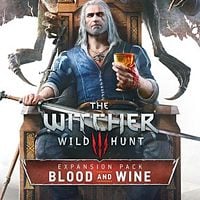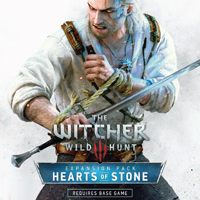Is Redania a witcher-image of Poland? Analysis of The Witcher 3: Wild Hunt & original books
Both Andrzej Sapkowski and CD Projekt RED were happy to fill the Witcher world with many references to our reality. So many things can be considered a reference that many believe Redania to be an allegory of Poland. Here’s our look at the matter.
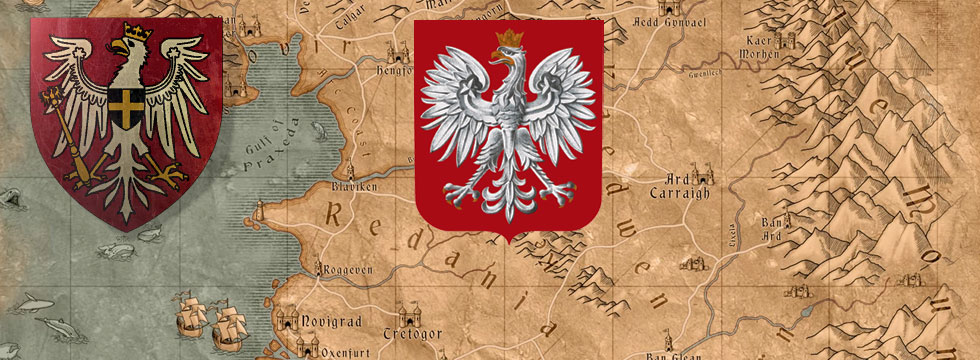
As you’re probably perfectly aware, the world created by writer Andrzej Sapkowski and then made into a game series by CD Projekt RED is not your typical fantasy realm that can be found in most video games. Both the author and, consequently, the developers often nod at the public to make a statement about reality. Such messages compelled the fans to search for various analogies in every bit of The Witcher universe; one of the most interesting ideas generated by this fan activity is the theory that Redania, one of the Northern Kingdoms, is in fact… a distorted, mirror image of Poland, the native land of the Witcher books and games. How well-grounded is this theory? We’re about to find out.
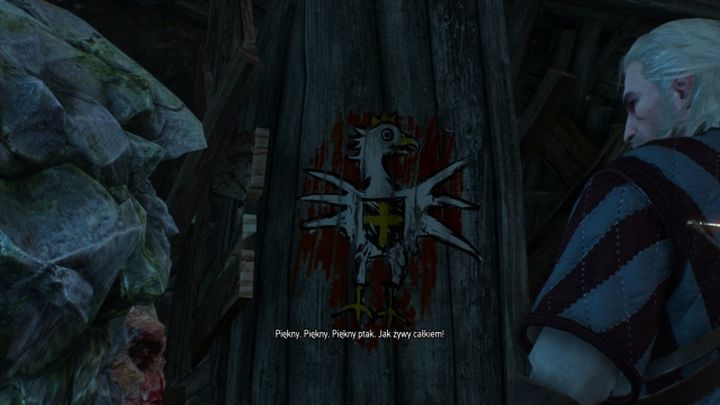
In favor of the theory
Coat of arms
The first and most striking similarity to Poland is Redania’s coat of arms. It depicts a crowned, silver eagle on red background, wielding a golden scepter and small black shield with a golden cross on it. Truth be told, the Polish eagle is white, and there’s no scepter nor shield in its claws, but the resemblance is obvious.
Geography and economy
Another feature of Redania that feels suspiciously familiar is the geography. Access to sea in the west, mountains in the east, mild lowlands in the middle… Rotate the map 90 degrees and we’ll pretty much have the image of contemporary Poland. Of course, the argument itself would be invalid had it not been for a few more analogies.
Take the Pontar, for example – while Redania’s biggest river doesn’t actually flow through the heart of the land as it’s a natural border with Temeria, it serves a similar role to that played by the Vistula during the glory days of the Polish-Lithuanian Commonwealth. Namely, it is primarily used to float crops to the great port of Novigrad, from where the goods are shipped to the rest of the continent – economically, this makes Redania a breadbasket of the North, which again is a feature shared with the 16th-century Commonwealth.
And then there’s Novigrad itself – or The Free City of Novigrad, to be more exact. The biggest of the Northern cities, it’s politically independent of Redania (although located within the country’s territory). Novigrad, built in the strategically convenient location – the Pontar Delta – was also a center of culture and commerce. This sounds an awful lot like Gdansk, or alternatively, the Free City of Danzig, as it used to be called at one point in history; however, that was during the early 20th century – long after Poland floated crops there to establish a strong economic standing in Europe. And do you remember the big crane in Novigrad’s docks in The Witcher 3? It’s actually an exact copy of Der Krantor – a crane that’s one of Gdansk’s attractions.
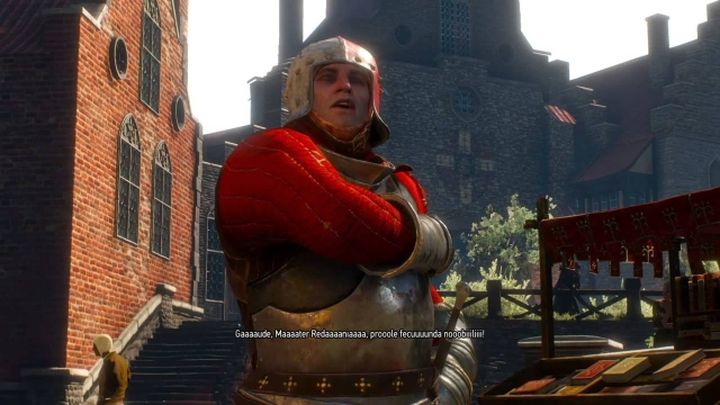
Society
Although The Wild Hunt doesn’t emphasize this, Radania was a country dominated by the nobilty – the class was much more numerous here that in other countries of the North. What’s more, the nobility held itself in high regard, and despite serious internal disparities even the poorest nobleman was bound and protected by the same laws as the most affluent magnates. Let’s not forget the situation of feudal servants and farmers, who were practically slaves, bound to a piece of land and drudging for their masters, and we will pretty much get the picture of the 17th-century Commonwealth.
As I’ve said, The Witcher 3 doesn’t paint a very detailed picture of the social landscape of Redania. Things get a bit different, however, with The Hearts of Stone expansion. The western audiences may have missed it, but Olgierd von Everec and his joyful company are all evocative of the Polish noblemen. With the signature robes, swords, inns and what not, we get a festival of Sarmatianism, which underpinned the identity of the nobility in the Commonwealth.
Details
By now you should see that there’s plenty of evidence backing the theory that Redania was in fact based on Poland (and we haven’t even presented all of them). Other analogies include some of the Redanian names: especially those of kings, such as Radovid, Dambor or Sambuk, or names of locations (Lukomorze or Holopole sound as Polish as it gets). What’s more, Redania once established a union with its northern neighbor, Yamurlak, which might remind those historically inclined of the already mentioned union between Poland and Lithuania, established in 1569.
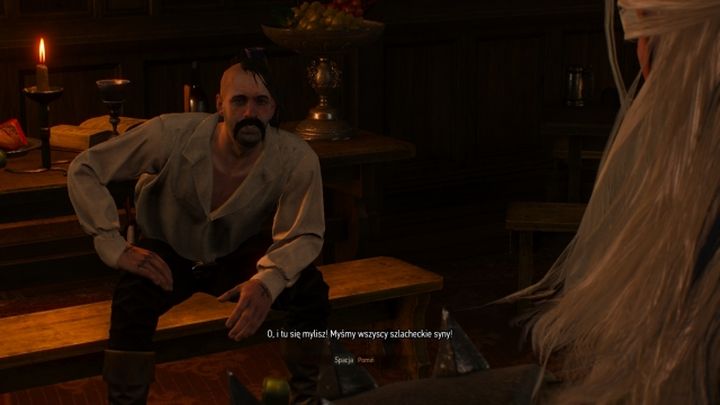
The other edge of the sword
However, there are as many proponents of this idea as there are opponents… the latter may actually be slightly less numerous than the former, but whatever they lack in numbers, they make up with quality.
Country without pyres
One of the interesting things about Poland is that historically its people were not too inclined to burn others at the stake. While in the 16th century the alleged heretics and witches were grilled by the thousands in the Western countries, in the ethnically and religiously diverse Poland the atmosphere was much more relaxed, prompting some historians to call it a “country without pyres”.
The same cannot be said about The Witcher’s Redania. Even though we personally witness this form of execution only once in the game, and that happens in the formally independent city of Novigrad, the players are aware of the fact that the witch hunt frenzy is inspired by king Radovid himself. Besides, this city isn’t the only place where such practices occur. Margarita Laux-Antille tells Geralt that the purges targeting mages had reached even the distant Gors Velen, or more specifically the Aretuza school of magic. But the sorcerers were not the only group to stir the rabble’s hate; where there were no magically inclined people to blame, elves and dwarves could easily become the scapegoats.
In other words, when considering the number of executions by fire, Redania is much closer to blood-soaked France from the times of Reformation than it is to Poland, the country without pyres.
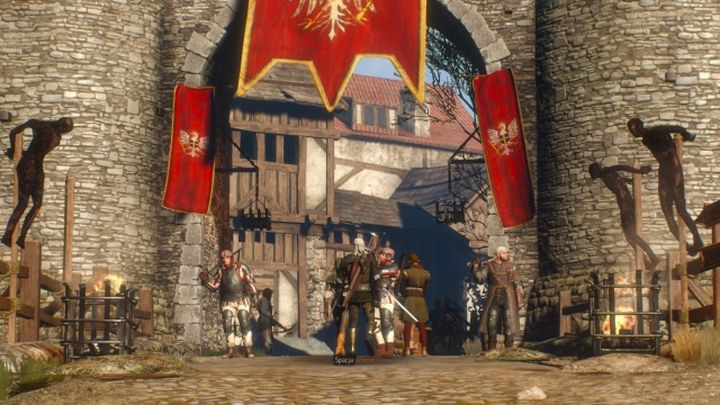
Radowid V the (Too) Stern
If Redania were indeed designed as some version of Poland, then another problematic piece of the puzzle would be king Radovid – a despotic tyrant who slowly gives in to madness and doesn’t hesitate to drown his country in blood for the sake of personal vengeance on sorcerers (right in the middle of the perilous Nilfgaard invasion, to add some drama). Many players acquainted with the saga pointed out that CD Projekt RED might have taken things a bit too far by portraying the invading forces of the empire as sophisticated and civilized, almost benevolent when contrasted with the barbaric North and superstitious Redania; and emperor Emhyr var Emreis as, ultimately, the lesser evil.
Seeing Radovid as an emblematic Polish king would not be the best advertisement for Polish monarchs, right? Besides, why would the developers want to spoil the pretty picture of the Slavic culture they painted so meticulously? I wouldn’t suspect them of such an intention. Radovid, a malevolent autocrat who basically lost his marbles, looks hardly like another symbol of Polishness smuggled into the game.
Not just Redania
I’ve already mentioned that some local names in Redania could be associated with Poland. In The Witcher 3, however, if we go to the southern – Temerian – side of the Pontar river, we’ll find Polish-sounding names by the bushel: Wronce (Crow’s Perch), Podgaje (Midcopse), Krzywuchowe Moczary (Crookback Bog), Klomnica (Fyke Isle), Zalipie (Lindenvale), and Glinsk (Claywich), just to mention a few. Meanwhile, just across the river, village names often sound distinctively different, e.g. Cartsen, Alness, or Fralche. Even Hearts of Stone, the most glaringly Poland-inspired expansion, was dressed in foreign names – the main character of the DLC came with a German-sounding surname von Everec, same as Brunwich, the village where the wedding took place (though admittedly, simply using the name of its real-life, literature-inspired counterpart, Bronowice, might have been too obvious a reference.)
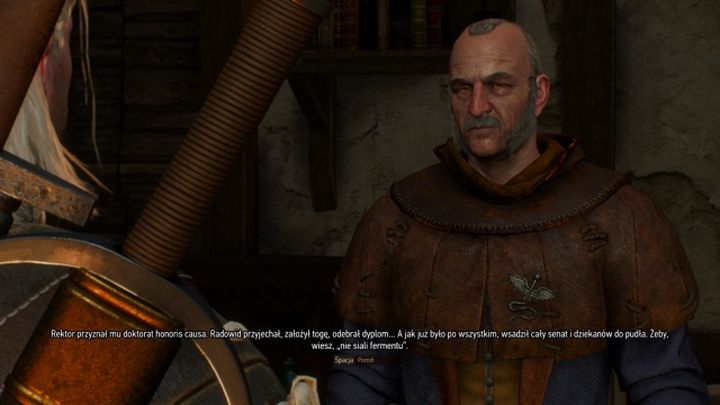
What does the author say?
Up to this point I’ve focused on the presentation of the setting in the games (especially in The Witcher 3). Now it’s time to reach deeper, all the way to the roots. As far as I know, Andrzej Sapkowski, the author of the Witcher book saga, has never clearly confirmed that he modelled Redania after Poland. But he was asked on several occasions whether he used his books to intentionally deliver some concealed comment on our reality, perhaps motivated by his political views. One of the people to inquire him about it was Professor Stanislaw Beres, who conducted an extensive interview with Sapkowski in 2005, which was published some time later in the form of a book, entitled History and Fantasy (Polish title: Historia i fantastyka).
The writer firmly denied any political entanglements – even when the conversation moved away from his books – and explained, time after time, the essence of his writing:
I’ve said it once, and I’ll say it again: there is no deliberate world creation in my books! When it comes to the ontology of the entire civilization, it is rudimentary, subservient to the plot and only the plot. (...) True, later on, when I began writing the book series, I had to form some crude geographical framework, including politics and economy; I had to be aware of what’s in the north, what in the south, and which way to the sea. But I did it only as far as the plot required it, no more than it was necessary and essential to the story. Not an inch more. My world is a pseudo-world, a mere background, a picture on a canvas moved by a reel. And it’s justified – after all, the story in the books is about the fate of the characters, not about the fate of the world; the setting serves the plot, not the other way around. Yes, it is a kind of ontological construct, but it is subservient to the plot, not to its own fantastical, sometimes even outlandish, ontology.
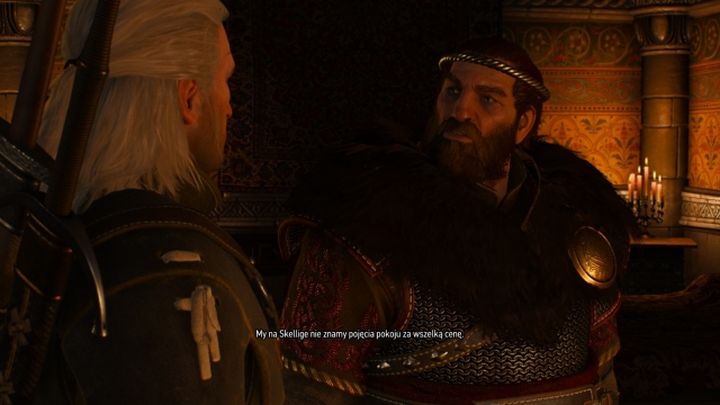
But that’s just one side of the coin. On the other hand, we know that Sapkowski doesn’t avoid jokes, shout-outs, nods, and widely-defined ahistorical elements. This would suggest that similarities between Redania and Poland may be something more than a coincidence. If, however, Sapkowski really wanted to play some kind of game with his readers, this game was very subtle and unclear. After all, this Polish allegory would do nothing to serve the plot – the factor that according to Andrzej Sapkowski is the crucial element of any book. All the more so when we remember that Sapkowski didn’t particularly focus his readers’ attention on Redania, among all the other Kingdoms of the North. It got about as much “page time” as, say, Temeria.
Another quote from History and Fantasy, in which the writer has finally yielded and agreed to comment on his homeland, tells us that Sapkowski won’t be found among Poland’s biggest patriots:
I’m living with a certain condition, the baggage of being born in Poland, which is an important element of our culture. I say, let it be a part of our culture. But for God’s sake, don’t let it rule over us! At least I do not consider myself to be that much of a Polonophile.
I have my own, rather critical, opinion on what is currently gong on in Poland, but I didn’t come here to make statements on that. Not that my opinion would matter anyway.
Well, if his opinion isn’t worth a dime, then why should he put it on paper and include it in his books – books whose every element, as you may remember, is controlled by the plot. I’d say this clears up the whole matter. And if not, here’s one final quote to leave no further doubt:
Notice how in my writing war isn’t a battle between Good and Evil. It’s all about professionals killing other professionals. I try to avoid this mystical envelope, which tends to weasel its way into everything, especially into historical war chronicles: we are the good guys, and anything that opposes us is the barbarian horde (...)
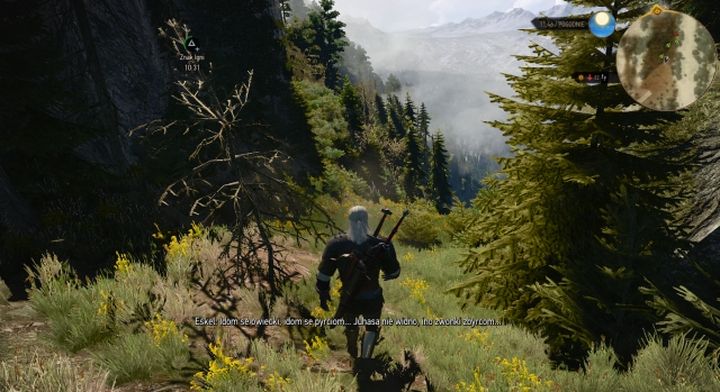
Conclusion – 1,500 words about nothing?
All right, I guess I’ve gathered enough arguments to form a conclusion and finally answer the question: Is Redania Poland? It’s difficult to provide a clear answer as there is about as much evidence in favor of this theory as there is against it, but in my opinion the verdict is as follows – all similarities between Redania and Poland are incidental and/or a result of a casual nod from the author. Nothing more.
Andrzej Sapkowski created a world full of ahistoricisms, anachronisms, jokes, shout-outs, elements borrowed from modern culture, and so on – things that prompt us to take this entire creation with a grain of salt and prevent us from insisting on forming a coherent vision of the world based on its individual bricks. CD Projekt RED, in turn, are Sapkowski’s talented apprentices when it comes to storytelling, playing with the fantasy premise just as he does. Well then, does Redania – or rather a part of its characteristic – resemble Poland? It sure does. Is there any deeper meaning to this fact; perhaps a hidden message? No more deep and hidden than the author’s desire to bring a smile to the Polish reader’s face. Nothing more, nothing less.
